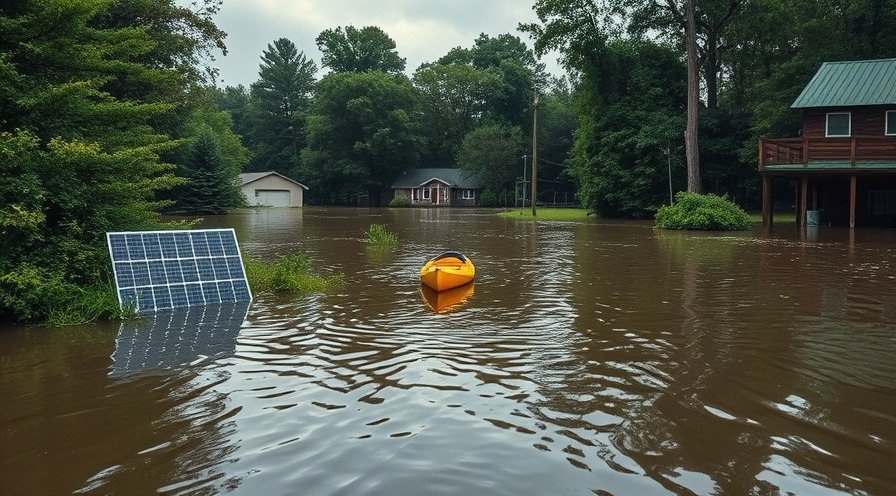
Learning Resilience From Nature's Fury
In light of North Carolina's recent storm experiences, the stories of those who faced the wrath of nature underscore the critical importance of resilience and community preparedness. Waterlogged basements and damaged homes tell tales of not just devastation but survival and recovery. As climate change intensifies storms, communities are compelled to rethink their planning and response strategies to mitigate future damage.
Why Community Connection Matters
Survivor accounts reveal a profound sense of community during times of crisis. When individuals come together, they share resources, gather information, and provide emotional support, which is invaluable in recovery. This collective spirit can augment physical recovery processes after disasters, aiding mental health as well. Reinforcing community ties not only helps in times of disaster but brings lasting benefits for well-being long after the floodwaters recede.
Comparative Lessons from Other Regions
Experiences from regions like New Orleans, which has faced similar weather challenges, offer vital lessons. Post-Katrina planning led to infrastructure changes that strengthened flood defenses and community resources. Preventive measures such as improved drainage systems and heightened awareness programs for residents highlight the importance of learning from past mistakes. If North Carolina applies similar strategies, prepared readiness may help avert future consequences of flooding.
Future Trends in Hazard Mitigation
Looking ahead, smarter planning initiatives can incorporate innovative solutions. Examples include constructing wetlands and implementing green infrastructure that absorbs flooding, which could prove beneficial in storm-prone areas. As cities evolve through ecological resilience, suffering from floods may become less frequent, improving overall community health and safety.
Actionable Steps for Individuals and Families
Preparation starts at home. Families can create personal emergency plans, ensuring everyone knows how to respond quickly. Resources from local governments can guide residents to flood-proof their homes, thereby minimizing risks. Simple actions, such as moving valuables to higher ground and securing home insurance that covers flood damage, can make a significant difference in outcomes post-storm.
Empowering Yourself With Knowledge
The storms that ravaged parts of North Carolina illuminate the pressing need for increased awareness and preparedness. By educating ourselves about what nature can unleash, we are not just surviving; we are empowering ourselves and our communities for a better tomorrow. When we embrace this knowledge, we transform vulnerability into strength and resilience.
Take action now—educate your community, develop plans, and be prepared. Together, we can build a future where resilience flourishes and communities are equipped to handle any storm.
 Add Row
Add Row  Add
Add 




 Add Row
Add Row  Add
Add 

Write A Comment